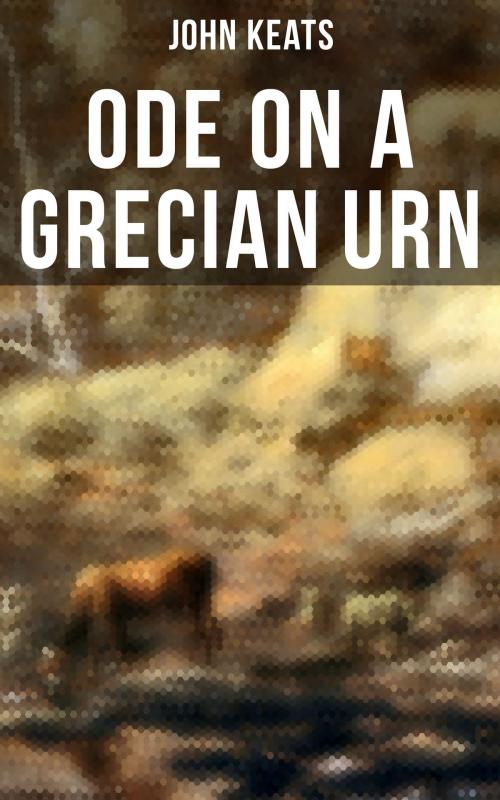Ode on a Grecian Urn
From one of the most beloved English Romantic poets, best known for his Odes, Ode to a Nightingale, Ode to Indolence, Ode to Psyche, Ode to Fanny, The Eve of St. Agnes, Lamia, Hyperion and more
Fiction & Literature, Poetry, British & Irish| Author: | John Keats | ISBN: | 9788027230013 |
| Publisher: | Musaicum Books | Publication: | November 15, 2017 |
| Imprint: | Language: | English |
| Author: | John Keats |
| ISBN: | 9788027230013 |
| Publisher: | Musaicum Books |
| Publication: | November 15, 2017 |
| Imprint: | |
| Language: | English |
Divided into five stanzas of ten lines each, the ode contains a narrator's discourse on a series of designs on a Grecian urn. The poem focuses on two scenes: one in which a lover eternally pursues a beloved without fulfilment, and another of villagers about to perform a sacrifice. John Keats (1795 – 1821) was an English Romantic poet. The poetry of Keats is characterized by sensual imagery, most notably in the series of odes. Today his poems and letters are some of the most popular and most analyzed in English literature. "Ode on a Grecian Urn" was not well received by contemporary critics. It was only by the mid-19th century that it began to be praised, although it is now considered to be one of the greatest odes in the English language. John Keats (1795–1821) was an English Romantic poet. The poetry of Keats is characterized by sensual imagery, most notably in the series of odes. Today his poems and letters are some of the most popular and most analyzed in English literature.
Divided into five stanzas of ten lines each, the ode contains a narrator's discourse on a series of designs on a Grecian urn. The poem focuses on two scenes: one in which a lover eternally pursues a beloved without fulfilment, and another of villagers about to perform a sacrifice. John Keats (1795 – 1821) was an English Romantic poet. The poetry of Keats is characterized by sensual imagery, most notably in the series of odes. Today his poems and letters are some of the most popular and most analyzed in English literature. "Ode on a Grecian Urn" was not well received by contemporary critics. It was only by the mid-19th century that it began to be praised, although it is now considered to be one of the greatest odes in the English language. John Keats (1795–1821) was an English Romantic poet. The poetry of Keats is characterized by sensual imagery, most notably in the series of odes. Today his poems and letters are some of the most popular and most analyzed in English literature.















